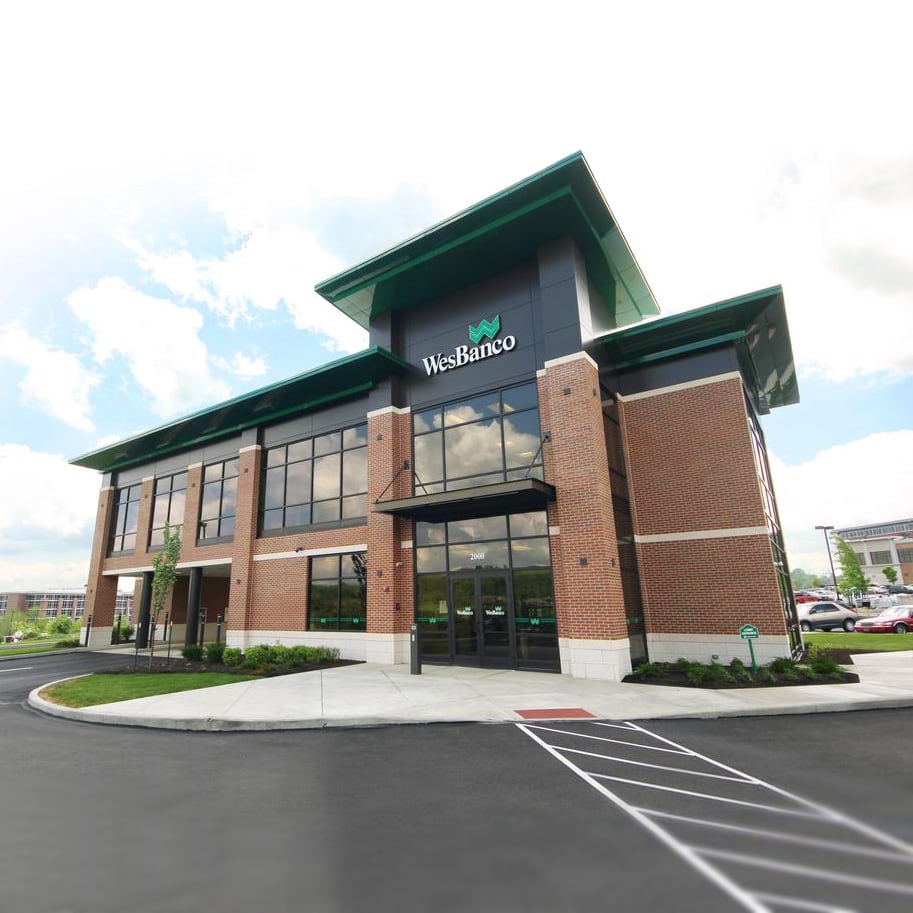NOTICE: Internet Explorer was retired by Microsoft on June 15th, 2022 and is no longer supported. This could change how you access Online Banking.
Auto Insurance

The truth is that car accidents are expensive, and it’s not just the price of fixing a bumper or headlight. Accidents can incur medical bills, repair costs, and even lawsuits and if you’re not protected, you could be on the hook for all the costs—especially if you’re the one found at fault.
It’s not about being a good driver, but making sure you’ve planned ahead so that you can commute, road trip, and joy ride without worrying about what it could cost you. WesBanco Insurance Services is here to help you understand the auto insurance basics to make sure you’re covered.
Coverage Components
Think of auto insurance as ordering off a fast food menu: You have lots of components that you can choose to make your perfect meal—or coverage. Most states require at least some type of insurance coverage before you’re legal to drive, but other types of coverage are add-ons that are options you can choose for even more protection. It’s important to understand each of the components separately before asking your insurance agent to help you “order.”
-
- Personal injury or personal liability. This is the most common type of insurance states require, at minimum, to let you on the road. It’s meant to protect you in an accident where someone is seriously injured or killed and you were the person at fault. The amount of coverage you have is usually calculated based on your assets. Your insurance agent can help make sure you have the right level of coverage.
- Property damage. Another common type of coverage required by states, this covers you in case you’re at fault and damage someone else’s stuff. In most cases, the property is a car, but it’ll also cover you if you damage something like a fence or utility pole, too.
- Collision. Car accidents don’t always involve another driver. If you have damage to your car that was caused by a collision with a parked car, a wall, or anything else where you’re the only driver, collision insurance covers you. If you have an auto loan, your bank might require you to carry collision insurance to protect them in case you do serious damage to a car they technically own.
Not all auto mishaps are crashes. |
- Uninsured or underinsured driver. You hope that everyone is as diligent as you when it comes to choosing the right level of auto insurance. Unfortunately, that’s not always the case, which is why insurance companies offer uninsured insurance. It covers you if the person at fault doesn’t have insurance or doesn’t have enough insurance to fix your car and pay for your medical expenses.
- Comprehensive. Not all auto mishaps are crashes. Comprehensive insurance protects you against other issues, including theft, fire, weather-related incidents, falling objects, vandalism, and even damage done by animals. It fills the gaps to ensure you’re covered even if your car damage isn’t the result of a collision.
Paying for Coverage
Once you’ve determined what coverage is required by your state and what coverage you’d like to add onto your “order,” you’ll need to understand the difference between your premium and your deductible. Your premium is the amount your insurance costs annually. It’s a combination of the types of coverage you want combined with information from your driving record. If you’re what’s seen as a “risky” driver by your insurance company (think previous accidents or tickets), your premium will likely go up. Most people pay their insurance premium on a monthly basis.
Some of your coverage might be subject to a deductible. Just like health insurance, it’s an annual amount that you’re responsible for before your insurance steps in and pays the rest. If you have a $500 deductible for your collision insurance, for example, and you drive into your garage door, you’ll be on the hook for $500 of the repairs before insurance pays anything else. If you have another accident later in the same year, however, and you’ve already met your deductible, you won’t have to pay it again
Sometimes, you can score a lower premium by choosing a higher deductible. But it also means that you run the risk of paying a higher amount out of pocket if you have an accident. A lower deductible usually means a higher monthly premium, so it’s definitely worth talking to your insurance agent to choose the best option. You might also be eligible for discounts if you have more than one car or you have a stellar driving record, so there are ways to make insurance more affordable.
With a giant menu of auto insurance coverage in front of you, it can definitely be confusing. You want injury protection, but would you like comprehensive with that? The trick is to choose the coverage you can afford to feel protected before you hit the road—or the drive thru.
Content is for informational purposes only and is not intended to provide legal or financial advice. The views and opinions expressed do not necessarily represent the views and opinions of WesBanco.
While we hope you find this content useful, it is only intended to serve as a starting point. Your next step is to speak with a qualified, licensed professional who can provide advice tailored to your individual circumstances. Nothing in this article, nor in any associated resources, should be construed as financial or legal advice. Furthermore, while we have made good faith efforts to ensure that the information presented was correct as of the date the content was prepared, we are unable to guarantee that it remains accurate today.
Neither Banzai nor its sponsoring partners make any warranties or representations as to the accuracy, applicability, completeness, or suitability for any particular purpose of the information contained herein. Banzai and its sponsoring partners expressly disclaim any liability arising from the use or misuse of these materials and, by visiting this site, you agree to release Banzai and its sponsoring partners from any such liability. Do not rely upon the information provided in this content when making decisions regarding financial or legal matters without first consulting with a qualified, licensed professional.
Find a Location Near You!
WesBanco operates branches and offices in 8 states. Over the past decade, we have built a national reputation as a safe, sound and profitable bank holding company that always strives to do better by its customers.
Locations




